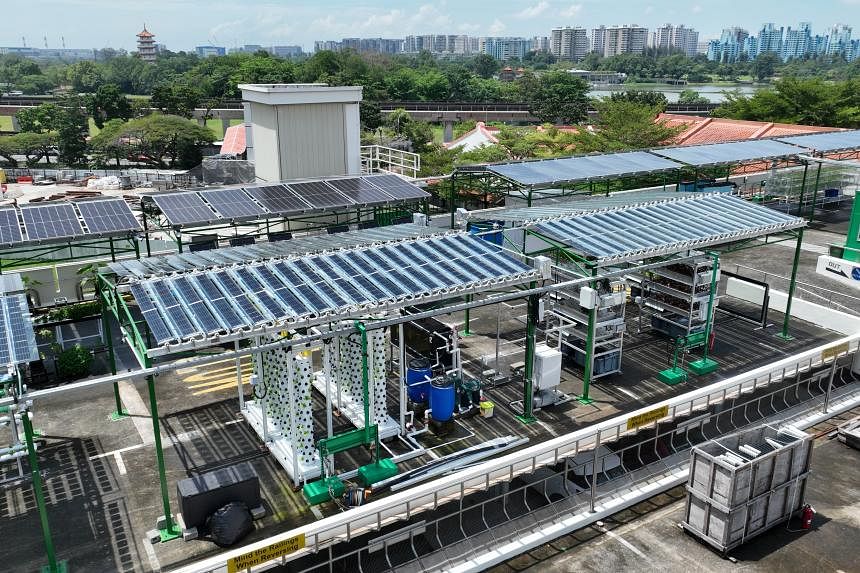SINGAPORE – Solar panels on rooftops are a common scene across Singapore, but the ones at a multi-storey carpark in Jurong East have a different story to tell.
Underneath the blanket of solar panels on the rooftop of Block 354 Jurong East Avenue 1 are leafy greens, muskmelons and even fish and prawns.
It is among the first rooftop projects in Singapore that link renewable energy and urban farming.
The Yuhua Agritech Solar (YAS) Living Lab is a nearly $400,000 site for research institutes, companies and heartlanders to run three-year projects.
When residents were consulted on the uses of the rooftop space in 2021, they said they did not want it to be just another community garden, said Professor Ang Hak Seng, chairman of the Yuhua Community Club Management Committee.
“They wanted to see solutions that can improve yield and better utilise scarce resources by leveraging the latest technology. After consulting Minister Grace Fu, we thought, ‘Why don’t we launch a Yuhua Agritech lab?’”
Ms Fu, who is Minister for Sustainability and the Environment, is the MP for Yuhua.
Later that year, the Yuhua Citizens’ Consultative Committee (CCC) called for project proposals in energy production and food security that also use sensors and the Internet of Things, and reduce waste.
Ten projects were eventually selected for test-bedding, and the YAS Living Lab was launched on Nov 4.
Prof Ang hopes that after three years, the project groups will be able to scale up their solutions and even start ventures.
One group, Project Shine, aims to revive under-utilised urban spaces to grow premium urban crops such as muskmelons in a closed-loop system that runs on solar energy.
At the living lab, the team is currently growing muskmelon – a fruit similar to rockmelon – and rearing giant freshwater prawns with the help of black soldier flies in managing waste.
The flies feed on food waste and used coffee grounds collected from Yuhua residents and nearby coffee shops, eventually turning the waste into frass or excrement, which will be used as fertiliser for the muskmelons. Black soldier fly larvae are also used to feed the prawns, forming a self-sustaining set-up.
Project Shine is run by Otolith Enrichment – an education company for aquaculture, agriculture and environmental science – and its partners.
While Otolith is an expert in rearing commonly farmed crops and fish here, it is using the test bed to work on difficult-to-grow produce, said founder and managing director Jonathan Poh.
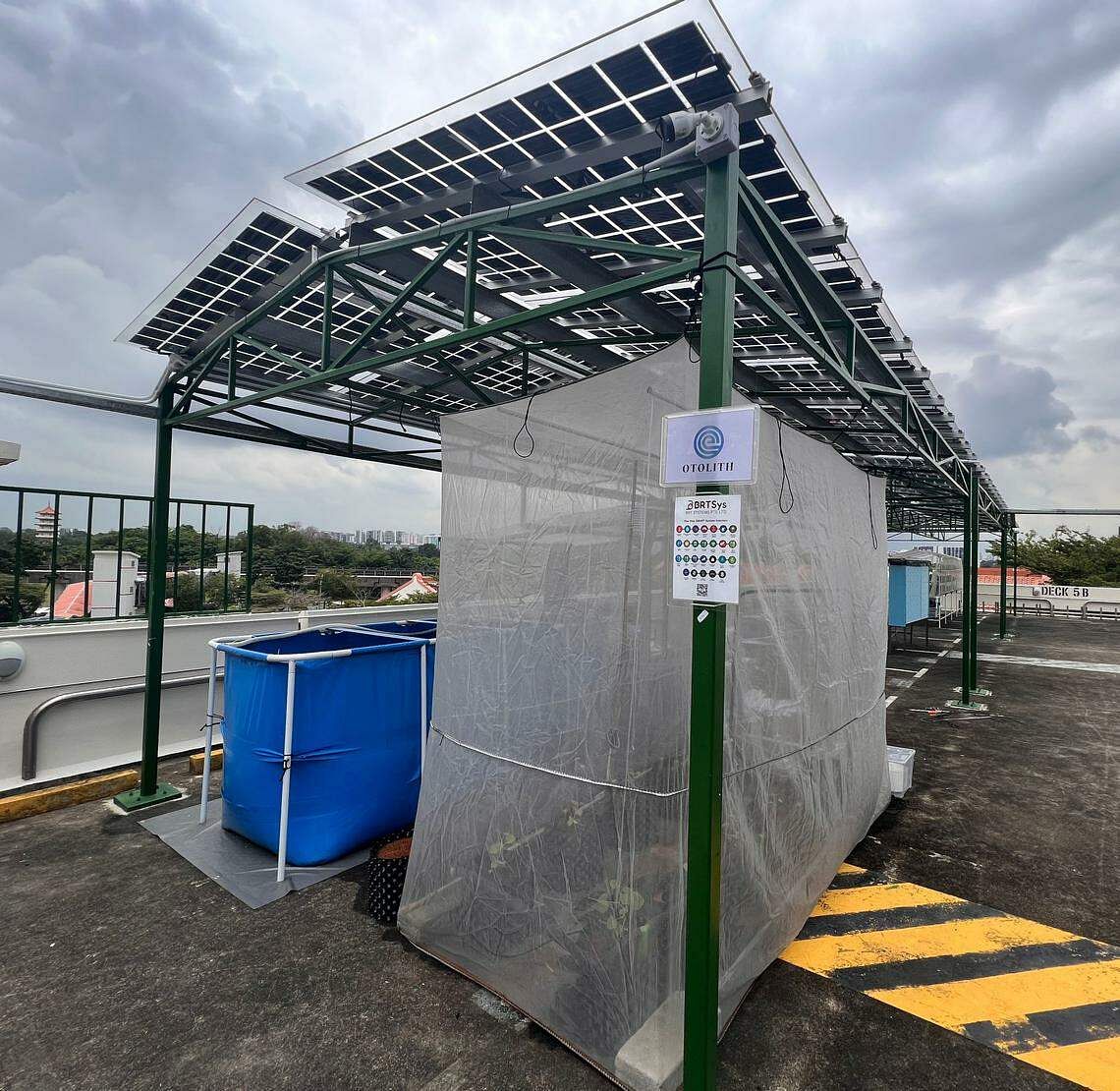
At YAS Living Lab’s launch, Ms Fu said the authorities have received proposals to install solar panels over urban farms here.
She added that the living lab will allow projects to study the impact of solar panels over crops, since the amount of sunlight, water and humidity will be changed, and find ways to optimise farming.
The $390,000 living lab was co-funded by the SG Eco Fund – which supports sustainability-related efforts – and Yuhua CCC.
The National University of Singapore’s Solar Energy Research Institute of Singapore (Seris) runs two projects on the rooftop, with agritech partners.
The solar panels invented by them can rotate like a window flap to track the sun during the day and maximise the amount of sunshine they can capture.
Lettuce, bok choy and chye sim are grown in a tiered shelf system in one set-up, and on vertical towers in the other.
A tilapia tank is connected to the vegetable towers to form an aquaponic system.
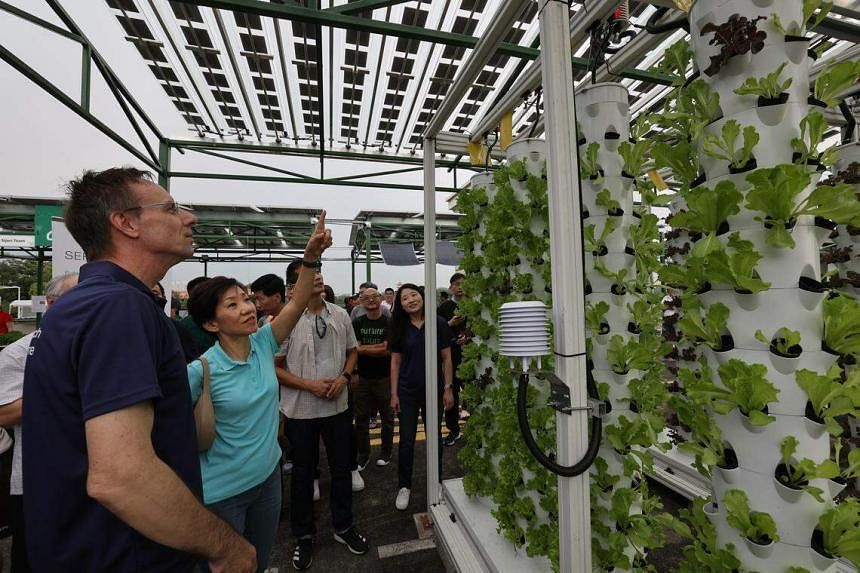
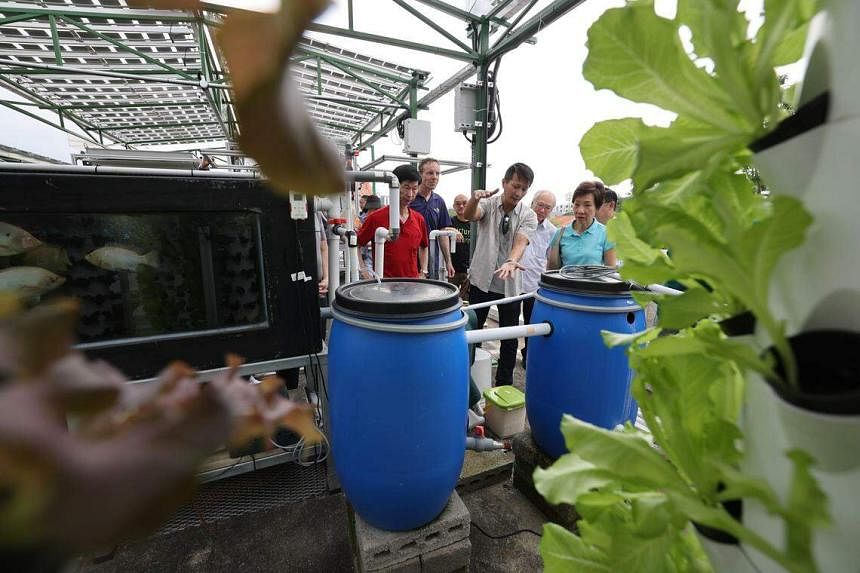
As the panels move, more sunlight can beam through the gaps to reach the crops. The solar roof can also shield the crops from excessive rainfall.
Having a solar roof makes sense because outdoor farms or greenhouses here need a netting or a cover to protect leafy crops against the strong midday sun, said Seris deputy chief executive Thomas Reindl.
“So we might as well take away the netting and use solar panels instead. The plants will not get too much sunlight, which they don’t like, and at the same time, we generate renewable energy,” he said.
“It is functional and more sustainable. And in Singapore, we are so space constrained, you need to use every square metre twice.”
In 2024, the team is looking to enclose the stacked shelf system in a mini-greenhouse, made of special windows that double as solar panels. These transparent panels will come from Australian firm ClearVue.
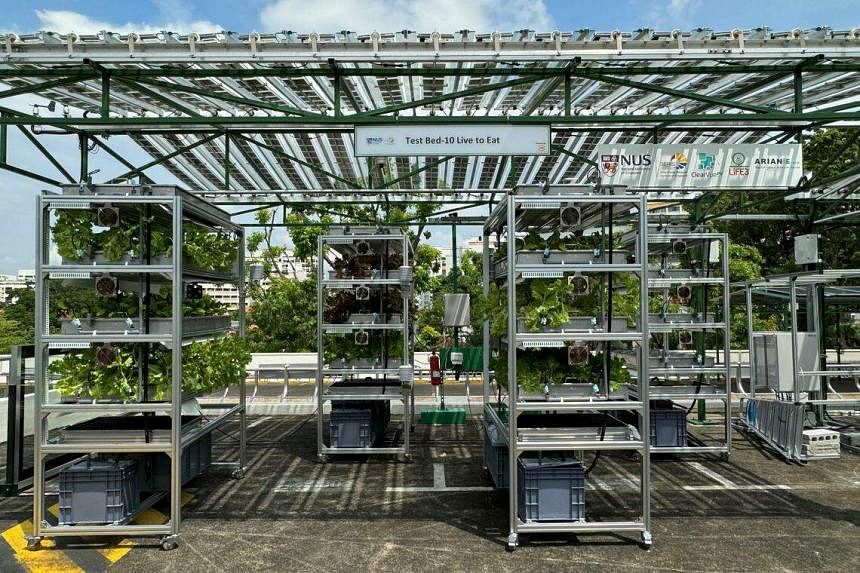
Seris has also fitted both its projects with sensors to develop a self-learning algorithm that will eventually enable the agri-solar test beds to be fully automated.
The aim is to replicate such self-running farms on more carpark and industrial rooftops, said Dr Reindl.
Depending on the projects, the harvested produce may be given away or used for further research. The site is also meant as a test bed for new ideas.
